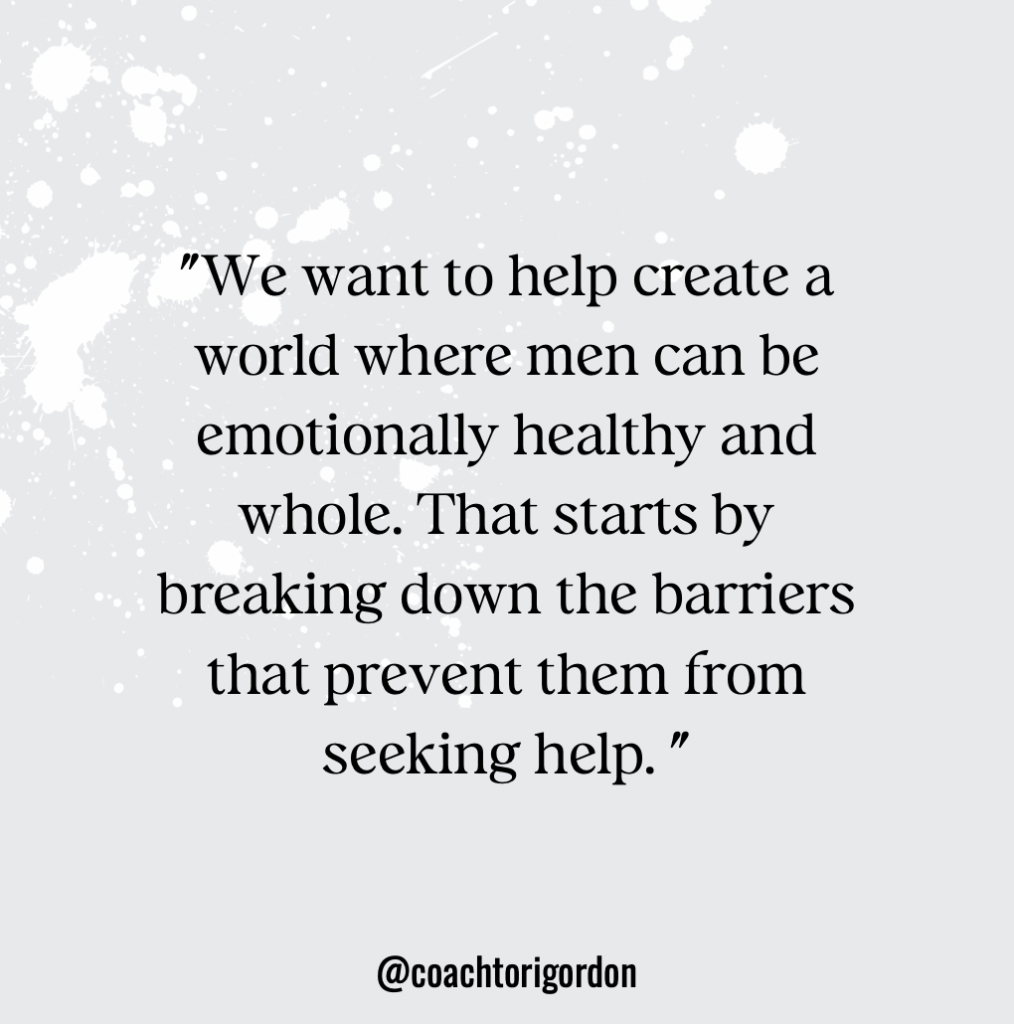Why We Should Allow Men to be Vulnerable
Society tells us that men must always appear tough.
“You’re a man, you need to be strong.”
“Real men don’t cry.”
“You have to keep it all to yourself.”
Men can show vulnerability without being seen as weak. But how can we really call our men forward into healthy masculinity?
It’s time for men to feel free to express their softer feelings without judgment or shame.
Being vulnerable can lead to stronger relationships and more authentic self-expression.
A relationship is not always led by masculinity. Femininity can step in, too. The secret to a harmonious relationship is open communication—expressing one’s true emotions and finding strength in each other’s vulnerabilities. And this is where most men struggle.
Connor Beaton, the founder of the ManTalks podcast, had a terrible time finding his real identity as a man because of the preconceived ideas of masculinity. When he finally climbed up from the rubble, he made it his life’s mission to help men take control of their lives and step into self-leadership. He shares how he came to this path and embraced a healthier concept of masculinity.
Building a man: the initiation
The “one rule of men” caused the culture of toxic masculinity. It is pretty similar to the first rule of fight club, where you don’t talk about what it’s like to be a man.

If you’re a man going through hardships, you don’t talk about what it’s like.
If you’re a man going through anything that might make you look weak, you don’t talk about those things.
Society somehow dictated that your manliness is dependent on your capacity to go through hardships alone. Many guys abide by that rule with the notion that they should figure it out by themselves. And this is a by-product of men having stripped off of the initiatory process of our culture.
There were particular trials and tribulations that men have to go through to do a few things—to help him understand how to metabolize pain and lead himself through challenging situations. The 2 things that initiation did to men were:
- Give men an experience that forces them into a position of powerlessness.
“When a man hasn’t experienced contained powerlessness, he will always abuse power.”
- Help a man unequivocally experience that he is part of an ecosystem, something much larger and much more significant than just his individual rational mind.
Sometimes, men get so rational that they get stuck in their own minds.
Courage and vulnerability cannot exist independently.
As a man, it’s taboo to share your weakness or struggles with others.
There’s this inexplicable need to be the alpha, the leader, to be respected.
Most men perceive any negative experience as something they need to keep to themselves. They are made to believe that to have the courage to face problems, there’s no room for vulnerability. But this doesn’t seem right.
Courage and vulnerability cannot exist independently. They are inextricably linked, interconnected. So to be courageous is to be vulnerable. And to be vulnerable is to be courageous.
The Core Feminine and Masculine Needs
The core feminine need often not met by men is being understood.
Because men often get stuck in their rational minds, they have no idea what a woman is experiencing. When women come to men and say, “I’m hurt,” men directly jump on the problem-solving phase without trying to understand the situation. And sometimes, they get angry.
There’s a bit of an unconscious resentment for men because they don’t have the freedom to express their emotions. They become mad at women for expressing their feelings because they themselves can’t do so.
Meanwhile, the core masculine need often not met by women is the capacity to contribute and provide.
You can be a strong independent woman who doesn’t need a man, but you must also make space for your man to provide for you. A relationship is teamwork. A man also wants to feel needed.
Arriving at a Healthy Masculinity
For a man to really understand his partner, he needs to go on a journey to understand his own feminine nature, his emotions, and vulnerabilities. For a lot of men, this can be terrifying. But that’s human nature, and you can’t avoid it.
We want to help create a world where men can be emotionally healthy and whole. That starts by breaking down the barriers that prevent them from seeking help.
We should allow men the space to be vulnerable without judgment or shame.
Watch Connor Beaton’s ManTalks podcast to learn that you do not have to hide certain aspects of yourself to feel manly, that you can actually develop a more robust and mature version of masculinity. Stick with us in our next podcast and other Coachable episodes!
March 17, 2022
